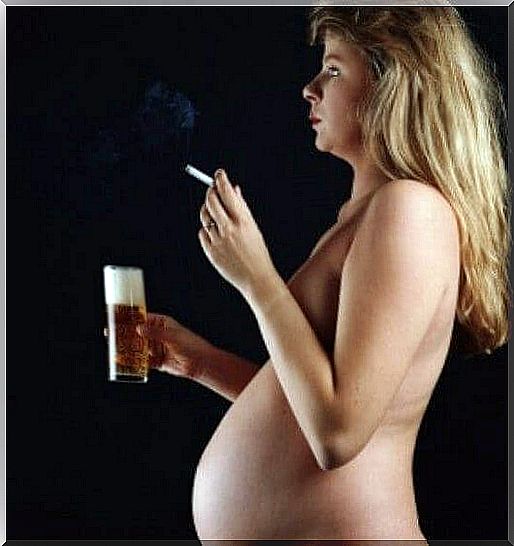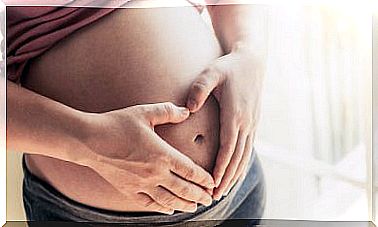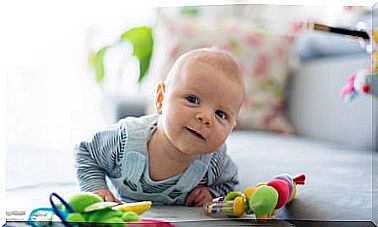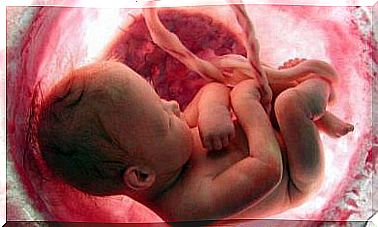Signs Of Fetal Alcoholism

Fetal alcohol syndrome is a serious condition suffered by babies whose mother was a regular consumer of alcohol during pregnancy. It is not a question of having ingested a drink, but of serious cases of alcoholism in the mother; It is common for it to be present in children placed for adoption, which is why it is very important to be able to recognize their main signs.
There is a serious danger in the consumption of alcohol during the gestation process; Well, as we know, this habit ends up affecting whoever wears it and therefore is also harmful to the fetus, who receives everything that the mother consumes. A woman with a drinking problem can seriously affect her child, even physically and mentally harming her for life.
If we have shown sufficient interest in this problem and avoid consuming alcohol during pregnancy, we may not have to worry about it. However, when we have adopted children or are thinking of having them, it is very important to be attentive regarding the origin of the biological mother and what her habits may have been while she was waiting for your baby; It is also very convenient to take it into account in cases of surrogacy.
Main signs that indicate fetal alcoholism
Fetal alcohol syndrome (FAS ) and Fetal Alcohol Effects (FAE), can occur in the same way in babies who were exposed to alcohol while they were in the womb. Although they present similar symptoms, in the case of FAE, there is no apparent mental damage and the other signs are produced to a lesser degree.

Thus, a baby affected by alcohol during its embryonic development could suffer physical and mental health problems, which could be permanent according to its damage. Some of these effects may not be noticeable until later in life, and may even be better identified in adulthood.
An early diagnosis is always important, so it is advisable to be attentive to the following symptoms and signs.
- Facial deformity that includes an abnormality in the size of the eyes, usually to a lesser extent. Little development of the nasolabial fold and flat cheeks.
- Low birth weight babies
- Low development of skull size
- Motor coordination disorder
- Delayed physical and mental development
- Epilepsy
- Organic diffusion
- Little development of their social skills. Difficulty establishing friendships or maintaining ties with other people and groups
- Learning problems. Low imagination, lack of curiosity, insufficient memory, poor problem solving ability, limited language comprehension, inability to understand concepts such as money or time.
- Behavioral problems. Apathy, hyperactivity, anxiety, poor concentration, impulsivity, stubbornness.
Most of these signs begin to become visible as the child grows, especially those where their behavior is different from other children. When it is suspected that our child could suffer from fetal alcohol syndrome, it is important to observe those signs that appear at birth and keep an eye on their evolution, as it is possible that they manifest during the rest of life.

During adulthood, it is common for babies affected by this problem to show signs of poor behavior and learning. They are frequently involved in legal disputes, in addition to having serious difficulties in achieving their financial and personal independence.
How do I know if I have put my child at risk for alcohol?
The amounts of alcohol that we consume during pregnancy can make the difference between having a healthy child or having health problems throughout his life.
Although it has not been possible to determine precisely what is the measure that increases the risk of fetal alcoholism, it is understood that it is a frequent habit; In other words, it cannot be related to the fact of having the occasional isolated drink, but rather to excessive and habitual consumption.
Specialists also relate the development of this condition to the maternal organism, since not all women metabolize alcohol in the same way. In addition, other factors affect, for example, the age of the mother or the habits that accompany alcohol consumption, such as the time of drinking and the accompaniment of meals.
In this regard, it should be clarified that occasional drinking could cause cases of EAF (Effects of Fetal Alcoholism), a condition that is capable of causing symptoms similar to Fetal Alcoholism, but to a lesser degree. In general, either type of condition is triggered when the mother has exceeded alcohol levels during the first trimester of pregnancy.









